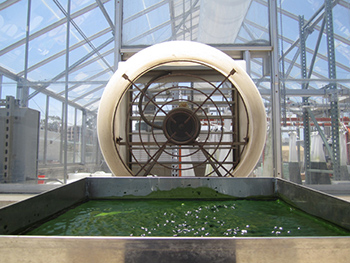
An inexpensive way to protect billions of people
Biologists at the University of California, San Diego have succeeded in engineering algae to produce potential candidates for a vaccine that would prevent transmission of the parasite that causes malaria, an achievement that could pave the way for the development of an inexpensive way to protect billions of people from one of the world’s most prevalent and debilitating diseases. Initial proof-of-principle experiments suggest that such a vaccine could prevent malaria transmission.
Malaria is a mosquito-borne disease caused by infection with protozoan parasites from the genus Plasmodium. It affects more than 225 million people worldwide in tropical and subtropical regions, resulting in fever, headaches and in severe cases coma and death. While a variety of often costly antimalarial medications are available to travelers in those regions to protect against infections, a vaccine offering a high level of protection from the disease does not yet exist.
The use of algae to produce malaria proteins that elicited antibodies against Plasmodium falciparum in laboratory mice and prevented malaria transmission was published May 16 in the online, open-access journal PLoS ONE. The development resulted from an unusual interdisciplinary collaboration between two groups of biologists at UC San Diego — one from the Division of Biological Sciences and San Diego Center for Algae Biotechnology, which had been engineering algae to produce bio-products and biofuels, and another from the Center for Tropical Medicine and Emerging Infectious Diseases in the School of Medicine that is working to develop ways to diagnose, prevent and treat malaria.
via Science Daily








